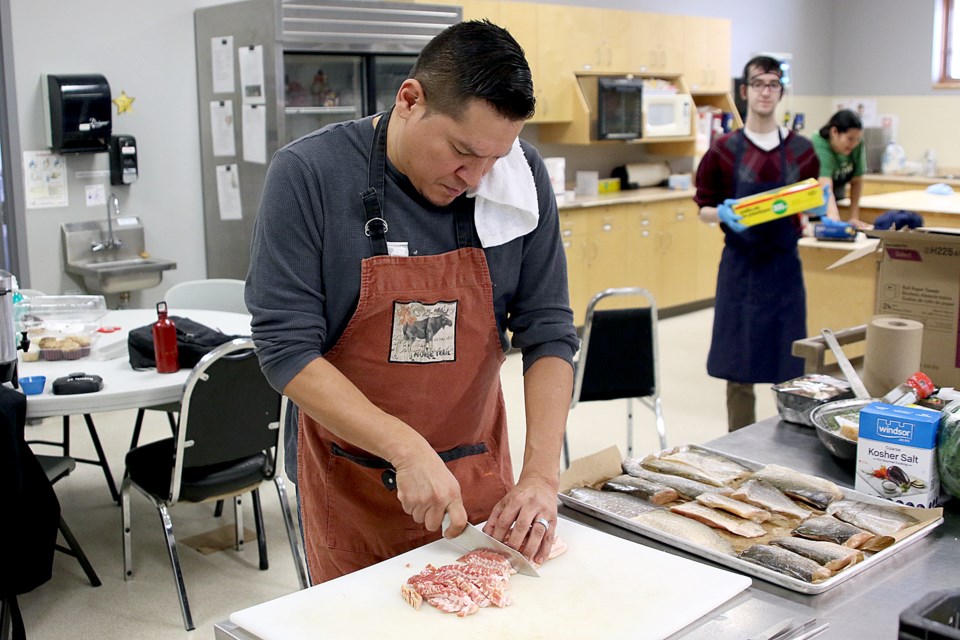THUNDER BAY – Representatives of 14 road-accessible First Nations in Northwestern Ontario have gathered in Thunder Bay this week to learn more about food self-determination.
Project director Jessica MacLaughlin said food security and food sovereignty in Indigenous communities is of utmost importance, and something that is lacking in many cases.
“We’re hoping they learn a whole bunch of things about sharing, about accessing traditional foods and using what they did pre-contact as a means of acquiring food today,” MacLaughlin said.
“It’s so important to get people back on the land. It’s a connection with health and culture and community.”
Land and food is a means of expressing sovereignty, she added, as well as addressing social and economic conditions impacting individual and community health, she added.
“Not only in northern remote communities, but what we’ve been finding in the project is that the road-accessible communities that we’re working with have similar issues around distribution, transportation, accessing quality fresh food at a cost-effective price – even just in the region, from Long Lake 58 to Beardmore, good food prices and good quality food are harder to come by,” MacLaughlin said.
The goal of the three-day workshop was to allow people from each of the 14 First Nations to make their own determination as to what works in their community – whether it’s expansion of a grocery store or becoming more heavily reliant on producing their own food.
“That’s their sovereign right,” MacLaughlin said. “If communities choose to go on the land more, then that’s what we want to encourage and support. That’s really what we’re doing, is allowing them to decide and for us to provide that facilitative support for them.”
The workshop gathered experts from across the region, including the Indigenous Food Circle, Roots to Harvest, Lakehead University, the Local Food and Farming Co-op Network, the Thunder Bay Good Food Box and the Thunder Bay Indigenous Friendship Centre.
Rich Francis, a chef and owner of Seventh Fire Hospitality Group, was also on hand to provide advice and to oversee a cooking demonstration involving fresh, Lake Superior trout.
He sees plenty of obstacles standing in the way of Indigenous food security and proper nutrition, but added they can be overcome.
“I think colonization has become the biggest hurdle in overcoming that,” he said, acknowledging too many people take the easy way out with processed or pre-packaged food, adding it’s time to get back to more traditional ways.
“It’s not that it was lost, it was just forgotten. That’s how Indigenous food is going to help revive that, and in my way it’s the quickest, fastest way through reconciliation, health and wellness as well.”
Convincing people to start thinking differently won’t be easy, it’ll be an ongoing process.
“It’s not going to happen overnight. I’m not 100 per cent there, but a lot of my work advocates for that and it’s something I’m passionate about.”
The workshops were put on in conjunction with the Thunder Bay District Health Unit and the Regional Food Distribution Agency.
